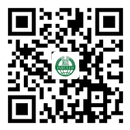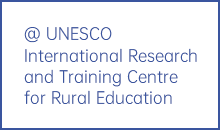Foreword
It is a great pleasure to present the 2016/2017 Biennial Report of the UNESCO International Research and Training Centre for Rural Education (INRULED). Providing an overview of programmes and activities carried out by the centre in the past two years, this report illustrates our longterm commitment to the ideal of education for rural transformation since INRULED’s inception in 1994.
Knowing that we are working in a transformative era, INRULED’s Governing Board re-examined its Medium-Term Strategic Plan (2017-2021) in April 2017 to guarantee that our work and actions are in line with the 2030 Agenda for Sustainable Development. Among the 17 proposed Sustainable Development Goals (SDGs), our programmes seek to contribute towards the realizing the targets of SDG 4 – to ensure inclusive and equitable quality education and promote life-long learning opportunities for all, by empowering rural people, who make up the majority of the population in developing countries.
In the same session of the Governing Board, it was my great honour for being nominated and approved as the Director of INRULED. It is both a privilege and a responsibility to lead INRULED into a new era along with the Board members. Since then, further to the continuation of our previous initiatives and programmes, major efforts were made to encourage extensive outreach in scale, scope and quality of INRULED’s four programmes: Skills Development for Rural Transformation, Quality Teachers for Rural Schools, Gender Equality and Women’s Leadership and ICT in Education for Rural Development, contributing towards the implementation of different targets of SDG 4. Based on the researches themed on these topics, we have organized well-targeted workshops, seminars and conferences to share relevant knowledge and support the capacity building of UNESCO member states. In addition, INRULED is developing a new initiative focusing on Ecological Civilization and Rural Development to better serve for the SDGs, which would provide a powerful platform for reflection on such key issues as the links between ecosystem, human well-being, and shared objectives for all sectors contributing to sustainable development.
Meanwhile, partnership plays an essential role in realizing INRULED’s mission to bring about positive changes in the thinking and behaviour of the rural population. During the years 2016 and 2017, we intensified our collaboration with other UNESCO institutes and offices as well as partners outside UNESCO, including those from the academia, government, private sector and social organizations. The spirit of cooperation has promoted productive interactions between INRULED and its wide range of partners. Here, I would like to express my sincere gratitude to the Chinese National Commission for UNESCO and Beijing Normal University, among many others. Without their deep involvement and continuous support, our programmes could not have been satisfactorily completed.
In the years to come, INRULED will continue to push for effective implementation of the Education 2030 Agenda and endorse the vision of education for rural transformation. Together with our many partners in the UNESCO family and beyond, we are expecting a sustainable future that is more inclusive and equitable for all learners.
Mr. Ronghuai Huang
Director of INRULED
- Download:
- Biennial Report 2016-2017













